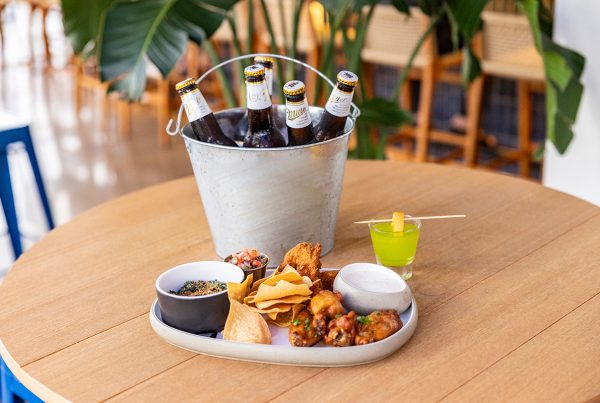Meet a few people who are reshaping Boca, from business to government to academics and the arts
IT’S A NEW DAY IN BOCA RATON. The city may still bask in the reflected light of its resort status, but its bold trajectory toward the future is a mix of innovators and visionaries, educatorsand entrepreneurs, people who believe in possibility—and don’t take no for an answer. Meet a few of them.
Katrina Carter-Tellison, vice president of academic affairs at Lynn University, started lighting up the Boca radar some years ago but especially in 2018, when she was instrumental in launching a new Bachelor of Fine Arts program at Lynn, specializing in musical theatre and acting. “That was a pretty big deal for us,” she says, “a signature program here at Lynn.”
Since then, her name comes up often not only at Lynn, but in business circles. She now sits on the board of the YMCA, and is on the International Advisory Board for Women Forward International, an organization focused on using art and culture and education to empower more women and “help advance human progress … in a way that to helps solve problems.”
Carter-Tellison, now 50, is herself no stranger to problem solving, overseeing “the academic side of the house” at Lynn, which numbers about 200-250 people, including the area of career connections and learning abroad—“any experience that the students would have from an academic perspective.” It’s a big job, and she has big ideas that go along with it, including an ambitious perspective for preparing students to enter the “real world.”
“My emphasis is to create a curriculum that helps [students] succeed, helps them understand that they need to go into a job and right away, on day one, be making a difference—in that environment, but also understanding the importance of being part of the human race, being a citizen…”
Carter-Tellison, who is married with twin 15-year-old sons of her own, gets the importance of earning money and honing “essential” skills Lynn teaches in the core curriculum. But her passion is getting students to see they have a larger responsibility, too, and that is to effect positive change along the way.
“Understanding the role of democracy is really important,” she says. “Understanding that they need to make a difference in some small corner. They don’t need to donate big money, they don’t need to be in line for the next Nobel Peace Prize, but they do need to understand that collectively we all have to do something toward advancing our future, and that making money is not the only piece of that.”
The notion of working to make society better is a natural for Carter-Tellison, who received her undergraduate and graduate degrees from the University of Miami in sociology. A native of the Cayman Islands, with her family all in some form of banking, she forged ahead with another interest.
“My area of expertise was in race and ethnic concerns. I came from the Cayman Islands, where race was not really something that was overly front and center—it was much more about class than it was about race. When I moved to the U.S. it was the first time that I realized that race was such a profound issue and sort of defined much about our existence. My father is Black, my mother is white, and so when I came to the U.S. as a woman of color, I thought, wow, this was really a thing that shapes and influences a lot of how we function.”
Her interest in race and nationality was in fact what led her to Lynn initially. (She has been there 17 years now.) “What really appealed to me was that it was very diverse internationally. When you come to campus you see all these flags, right? It means that we have someone currently in residence that is from that particular country. That first day I drove around looking for my flag—I found my flag and knew they had a student here on campus from the Cayman Islands, so I felt that affinity. … To have students in [your class] from different places and how they understand concepts like citizenship, democracy—all of that is very dynamic.”
Carter-Tellison is also a proponent of academicians climbing down from their ivory towers and becoming involved in their local communities; she thinks it’s a win-win for both.
“Academics have to have a strong partnership with the community. If we don’t have a strong partnership with the community, we don’t know what skills students are going to need when they go out into the world. … And there are things we can do to help the community in terms of problem solving. The community can help inform how we do things as well.”
Carter-Tellison says it all boils down to service and advocacy and improving the world—through education and community involvement.
“That is a key component to our lives,” she says. “To advancing who we are as a people and continuing to advance democracy. Democracy isn’t necessarily automatic. There’s a philosopher by the name of John Dewey, and he says, ‘Democracy has to be reborn every generation, and education is its midwife.’”
This story is from the November/December 2021 issue of Boca magazine. For more like this, click here to subscribe to the magazine.







